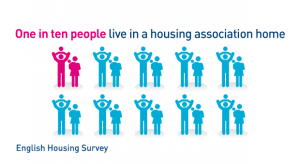Do buyers understand Shared Ownership Homes?
The answer, at least from research that My Home Move have completed, seems to suggest no. However, we find that our prospective Resident Partners understand Joint Equity Shared Home Ownership very well.
- So is the problem with the “public” regulated providers such as housing associations and Councils?
- Does the private sector such as Joint Equity do it better?
- Or is there something else that puts home owners off?
My  Home Move have found that shared ownership transactions across England and Wales have decreased throughout the majority of regions, in fact 7 out of 9 regions – including London, the Home Counties, North East, South East, Wales, West Midlands and Yorkshire – and interestingly currently accounts for less than 1% of housing stock across England and Wales.
Home Move have found that shared ownership transactions across England and Wales have decreased throughout the majority of regions, in fact 7 out of 9 regions – including London, the Home Counties, North East, South East, Wales, West Midlands and Yorkshire – and interestingly currently accounts for less than 1% of housing stock across England and Wales.
Just two regions, the East of England and East Midlands, saw a rise in shared ownership transactions between January and August 2017 compared to the corresponding months in 2016 and even in these regions, shared ownership counts for less than 1% of all completions, at 0.7% and 0.6% respectively.
 In a survey of aspiring first-time buyers, only 11% said they were looking to buy a shared ownership home, while nearly 80% were looking to purchase a home outright.
In a survey of aspiring first-time buyers, only 11% said they were looking to buy a shared ownership home, while nearly 80% were looking to purchase a home outright.
However, nearly 30% admitted to not understanding what shared ownership is. However, the English Housing Survey found 1 in 10 people live in Housing Association homes but does not differentiate rented from shared home ownership.
Doug Crawford, CEO of My Home Move, said: “Last February the Government pledged to fix Britain’s broken housing market, and yet one of the schemes designed to encourage home ownership is falling in popularity. Our research highlights just how small transactional volumes for shared ownership are, raising questions as to whether the scheme needs to change its image to attract new home buyers.”
“It’s our belief that home buyers, despite the lack of housing stack, are turned off by phrases like ‘affordable housing’, which is often used to describe ‘shared ownership’. Yes, they want to be able to afford their home, but they want to buy a dream.
The idea of buying a home that has been built to fulfill a quota, or is being sold through a housing association and so has the negative connotations of social housing attached to it, is just too much for some.
Perhaps we need to ‘rebrand’ the image of shared ownership, to bring it in line with initiatives like the Government’s Help to Buy, to make it more attractive to first time-buyers.”
Doug also said “With these findings in mind, we think there is a missed opportunity for those involved in shared ownership schemes, to educate aspiring first-time buyers better. Shared ownership can offer those trapped as ‘generation renters’ a real possibility of getting onto the property ladder, but it’s all a question of selling them the dream and maybe it’s time to find out what would make aspiring first-time buyers change their mind.”
How is Joint Equity and shared home ownership different?
Now we at Joint Equity do not sell a dream, we hate that phrase, we help renters deliver their own dreams; by Partnering with us and achieving together what we cannot accomplish alone. That does not just include a home but it includes improving our life and status.
Doug is right however, when he says shared home ownership has a stigma, who wants to be part of a quota, who wants to be seen as requiring “affordable homes” and relying on financial help?
Another big turn off, you tell us, is the intrusive application forms from housing associations and the way mortgage lenders look at “public” shared ownership and the connection with housing associations.
 Joint Equity is “tenure blind”, if you buy a home in Partnership with us, whether it is one of our new builds or its old stock you have found, your neighbours will never know your ownership is any different from theirs. You do not stand out as different.
Joint Equity is “tenure blind”, if you buy a home in Partnership with us, whether it is one of our new builds or its old stock you have found, your neighbours will never know your ownership is any different from theirs. You do not stand out as different.
In fact many of our Resident Partners seem to be proud of the Partnership with us, the support we give, the benefits we give and the security we give.
And we are equally proud of each and every one of our Resident Partners in having dreams and striving to achieve them. When our Partners move on to a home where they do not need our help we celebrate their success, when they buy out our Share we celebrate their success and even when we help an aspiring Resident Partner get their own mortgage without our help – yes you guessed it – we celebrate their success.
Why do we do this and more? Because we believe in Partnership and we are possibly the only shared home ownership provider that does.
So does shared home ownership need a “rebrand”, does it need to be made more attractive, less of a stigma around the name and process – the answer is yes.
Does Joint Equity need a rebrand, to be made more attractive, less of a problem – we think no, our Resident Partners seem to think no, the 2,400 people who are considering buying through Joint Equity seem to think no.
